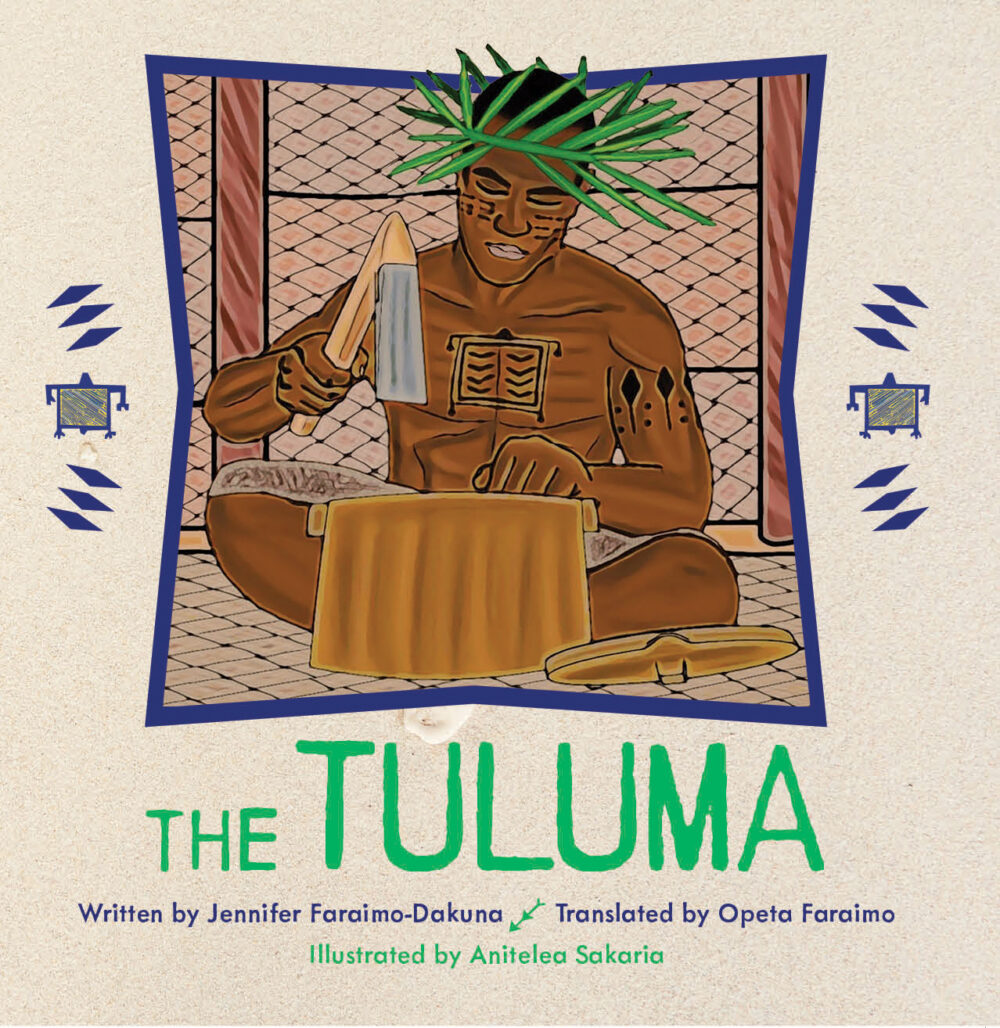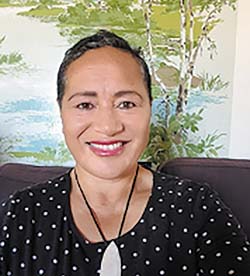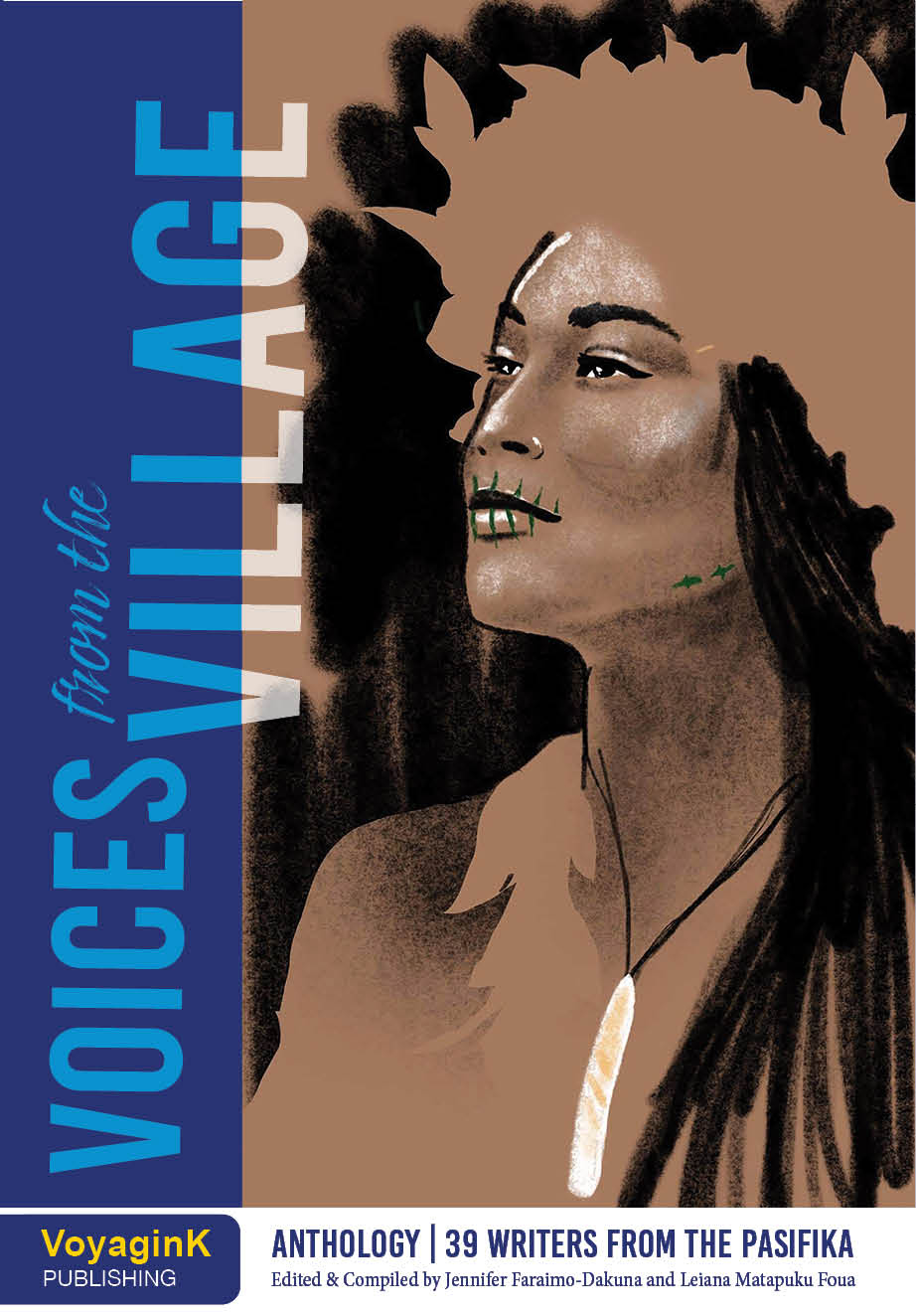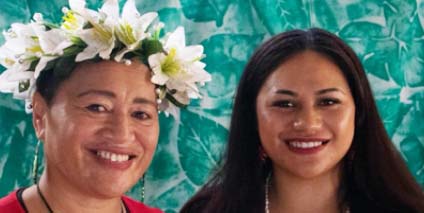ISBN 978-1-922452-58-0
PAPERBACK
The Tuluma
Tokelau is in the South Pacific Ocean located 3,335 kilometres North, North East of Aotearoa, New Zealand. Historically and traditionally Tokelau had four atolls: Fakaofo, Atafu, Nukunonu and Olohega. Unfortunately, today, Tokelau now only has three atolls.
THE TOKELAU NECKLACE is a story giving voice to the traditional and contemporary story of wearing a Tokelau artefact called the pa (fishing lure) necklace or commonly known as the kahoa (pendant).
As a New Zealand born Tokelau person, I observed my father keeping this tradition of making the pa and gifting them to relatives. May you as the reader, be blessed now with knowledge imparted to us through out our generations as to the significance of the pa.
Alofa atu – Jennifer Dakuna-Faraimo
ISBN 978-1-922452-58-0
PAPERBACK
The Tuluma
Written by: Jennifer Faraimo-Dakuna
Illustrated by: Anitelea Sakaria
Translated by: Opeta Faraimo
Tokelau is located 3,355 kilometres North, North East of Aotearoa, New Zealand. Historically and traditionally, Tokelau had four atolls. Fakaofo, Atafu, Nukunonu and Olohega. Today, Tokelau now only has three atolls. The Tuluma is a based on a true story. I grew up in a home with lots of Tokelau artifacts, in Porirua, New Zealand. I did not understand the significance of these artifacts until I became an adult. I hope you and your family enjoy reading this book written in English and the Tokelau language.
–Jennifer Dakuna
About the Author
Jennifer Faraimo-Dakuna is from Fakaofo, Tokelau. Her parents are Tolo and Petesa Faraimo.
Born and raised in Porirua, Aotearoa New Zealand, Jennifer enjoys eating Tokelau food. Her favourite food is coconut apple and coconut crab.
ISBN 978-1-922452-31-3
PAPERBACK
Voices from the Village
Acknowledgement of Country
We acknowledge the traditional Indigenous owners of the land and regions of:
• Gladstone, Queensland, Australia, the people of Gooreng Gooreng, Bailai and Gurang tribes
• Blackwater, Central Highlands, Queensland, Australia—Ghungalu people
• Cranborne, Melbourne, Victoria, Australia, the Mayone Balluk clan and the Boonerwrung and Kulin nation.
We acknowledge your elders, your leaders and communities, both past, present and emerging.
We acknowledge that it was on your traditional lands that we found rest and revitalisation in compiling this book and for which we are profoundly grateful.
Voices from the Village, a Pasifika anthology is a collection of poems and short stories from 39 Pasifika storytellers and writers. Our age range is 90 years young is to nine years old. Represented in this book are those who identify with the following islands: Tokelau, Cook Islands, Samoa, Fiji and Aotearoa, New Zealand. It is from this Pasifika village we proudly share our stories.
Short stories edited and compiled by Jennifer Faraimo-Dakuna and Leiana Matapuku Foua
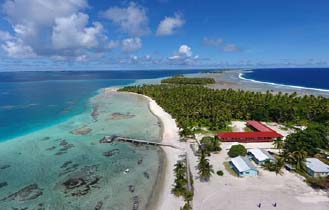
Fenuafala, Fakaofo, Tokelau—Photo Credit Fono Gaualofa
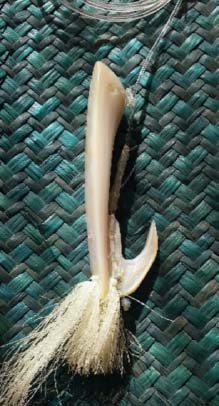
About the Authors
May the stories of the people from Tokelau, Cook Islands, Fiji, Samoa, and Aotearoa New Zealand not be silenced. We write to tell our story because this is our legacy.
We write because we were born to write.


